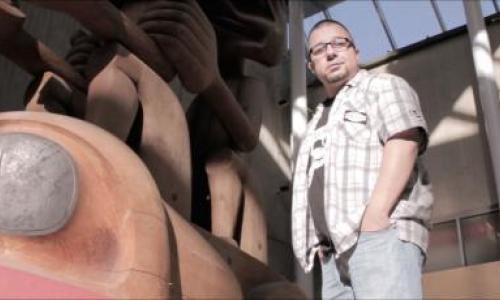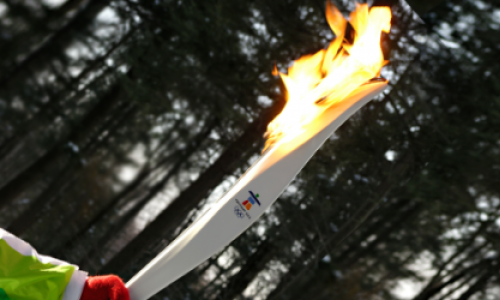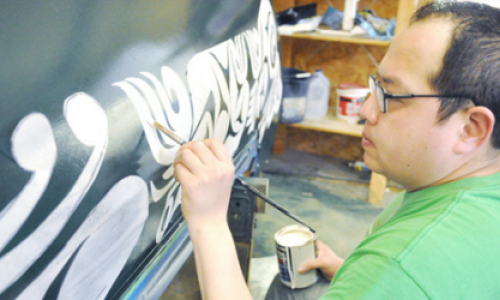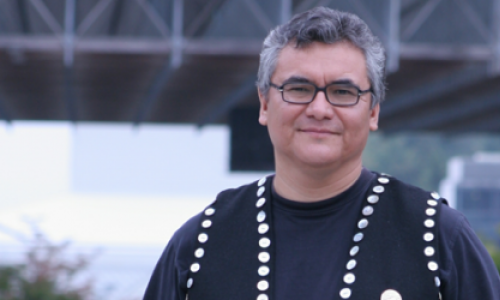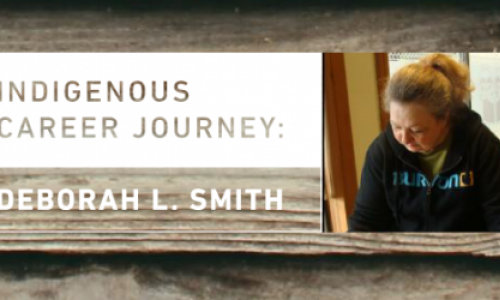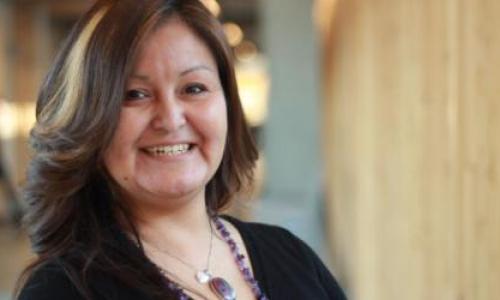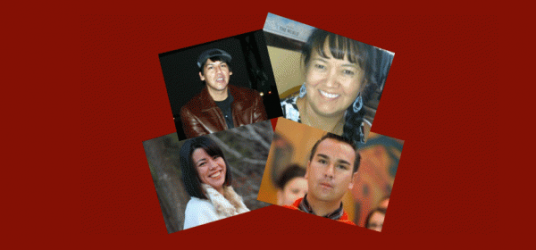
On February 21st, the Indigenous People’s Career Stories event took place at the Diamond Alumni Centre (DAC). This was my first year attending the event and was pleasantly surprised. The DAC is a beautiful venue; subtly elegant with a beautiful view of the forestation we are fortunate enough to enjoy at the Burnaby campus. My first thought was that it would be a perfect venue for a wedding.
The event itself was sponsored by the Career Services department, First Nations Student Association, Indigenous Student Centre and the Office for Aboriginal Peoples. Laura Forsythe, Indigenous Program Researcher with the Career Services department, was the lead planner and organizer of the event with the assistance of Jo-Anne Nadort and Career Services. The evening began with a brief thank-you to the organizers and volunteers, followed by an introduction of the Storytellers by Gary George, the Indigenous Student Life Coordinator with the Indigneous Student Centre. The Git Hayetsk Dancers provided culture and tradition. Their kind words about supporting our Indigenous Students were encouraging and their dances were beautiful, as always.
The highlight of the event was the Storytellers, each with very different experiences but sharing the same honesty and vulnerability. I took away something different from each of them.
Crystal Morris, from Shuswap Nation, was the first to begin. She is currently the Aboriginal Education Coordinator for the School of Population & Public Health at UBC. What struck me the most about her story was the amount of determination and perseverance she must have had to complete her education. As a full time mother and wife, the glue that held her family together, she painstakingly completed her education, making sure not to work on her homework until family time was over. This meant after the kids were in bed or before they woke up in the morning. Her priority went first to her family followed then by her education, but she still managed to realize her goals, despite her challenges.
Dr. Peter Eppinga, from the Haida Nation, was truly engaging. His sincerity and willingness to show his vulnerability was touching. He shared many great accomplishments and challenges; however, the part of his story that most resonated with me, was his creation and promotion of ‘Love My Life’ t-shirts. It’s no secret that Indigenous communities have suffered with systemic suicide, mainly by the teenage and young adult populations. (Source).
He created t-shirts with Haida art on the front with the caption ‘Love my Life’. 
On the bottom of the t-shirt there is an affirmation that reads upside down, so on those difficult days when the wearer of the shirt is looking down they can be reminded of their value in the world. The proceeds go toward things like Aboriginal Youth programs to help suicide prevention. Click here to order.
Gerald Bent’s story was also very honest and touching. He shared about many of his challenges through life, but what stood out to me was that he overcame them. His work with two-spirited Aboriginal offenders must be incredibly challenging. It takes a special kind of person to be able to bring hope and wellness to individuals who are facing such monumental odds. I was moved by the emotion he displayed while speaking of his Mother’s passing while he completed his schooling and his determination to succeed in honour of his Mom. That which he has done and will continue to do, I have no doubt.
The final storyteller was, Miranda Stirling, a member of Swxexmx of the Nlaka’pamux Nation. I was impacted by her determination to succeed. Her adolescent period was challenging, as it is with many of us, but she managed to change the course of her life and believe in her own ability to learn and to thrive. She has a career that she loves with New Relationship Trust, which that in and of itself is the purpose of seeking our education, to love what we do. She spoke about ensuring that we set Indigenous Students up for success. Too often, Indigenous students are not prepared for University standards and this can be devastating to those of us who seek higher education. Her insistence that we expect and encourage Indigenous students to reach their potential was the message I took from her story.
The emcee, Deanna Reder, who is Cree-Metis scholar and professor of First Nations Studies and English with SFU, completed the stories with engaging questions and a sense of humour.
All in all, the event was a success. The employers in attendance came with interesting displays and opportunities for Indigenous students. It was unfortunate that due to time constraints, the employers were not given a greater opportunity to share with the students; however, I know that this is something that the Career Services department is looking to adjust for future events.
I look forward to this event next year and am excited about the prospect of where I might be in my own career story at that time. I would encourage students to read the stories about the Storytellers and the various employers in attendance, and to imagine themselves living their dreams. It is possible, this I know for sure.









